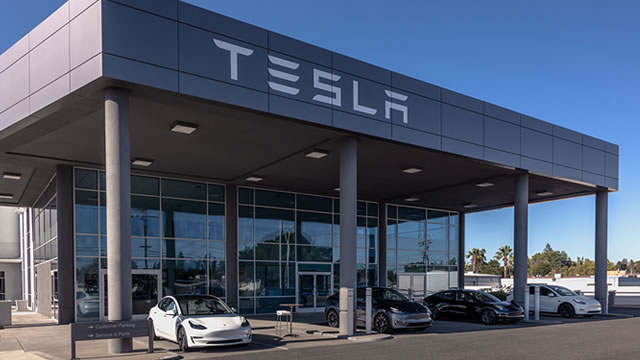Tesla’s Saudi Arabian Adventure: A New Chapter in Electric Vehicles
Thursday marked a significant milestone in the electric vehicle (EV) industry as Tesla, the trailblazing American automaker, officially launched its operations in the Kingdom of Saudi Arabia. This move comes after months of speculation and rumors of a potential mending of relations between Tesla’s CEO, Elon Musk, and the Saudi authorities.
Elon Musk and the Saudis: A History
Elon Musk’s relationship with Saudi Arabia has been a rollercoaster ride. In 2018, Musk made headlines when he announced on Twitter that he had secured funding to take Tesla private at $420 per share. The Saudi Arabian Public Investment Fund (PIF) was rumored to be one of the potential investors. However, the deal fell apart, and Musk eventually settled with the Securities and Exchange Commission (SEC) over securities fraud charges.
Ambitious EV Policy in the Oil Capital
Despite the rocky past, the Saudi government remains committed to its ambitious electric vehicle policy. The kingdom aims to have 100% of its vehicles be electric or hybrid by 2030. This shift is part of Saudi Arabia’s plans to diversify its economy and reduce its reliance on oil.
Impact on Consumers
For consumers in Saudi Arabia, Tesla’s entry into the market means more choices and potentially lower prices. Tesla’s Model 3, which starts at around $35,000, is significantly cheaper than many luxury EVs currently available in the kingdom. Furthermore, the Saudi government offers various incentives for purchasing electric vehicles, such as exemptions from import taxes and registration fees.
- More affordable EV options
- Government incentives for EV purchases
- Reduced reliance on oil
Impact on the World
Tesla’s expansion into Saudi Arabia is not just a win for the kingdom and its residents but also a significant development for the global EV market. Saudi Arabia’s vast oil reserves and its ambitious EV policy could potentially lead to a shift in the global energy landscape.
Moreover, Tesla’s entry into the Saudi market could pave the way for other EV manufacturers to follow suit. This increased competition could lead to more innovation, lower prices, and a faster transition to electric vehicles.
- Potential shift in global energy landscape
- Increased competition and innovation
- Faster transition to electric vehicles
Conclusion
Tesla’s entry into the Saudi Arabian market is a clear indication that the electric vehicle industry is here to stay. With the Saudi government’s ambitious EV policy and Tesla’s commitment to making electric vehicles more accessible and affordable, consumers in the kingdom and beyond can look forward to a future where electric vehicles are the norm rather than the exception.
Furthermore, Tesla’s expansion into Saudi Arabia could have far-reaching implications for the global energy landscape. As more countries follow suit and shift towards electric vehicles, we could witness a significant reduction in greenhouse gas emissions and a more sustainable energy future.
Stay tuned for more updates on this exciting development in the electric vehicle industry!





